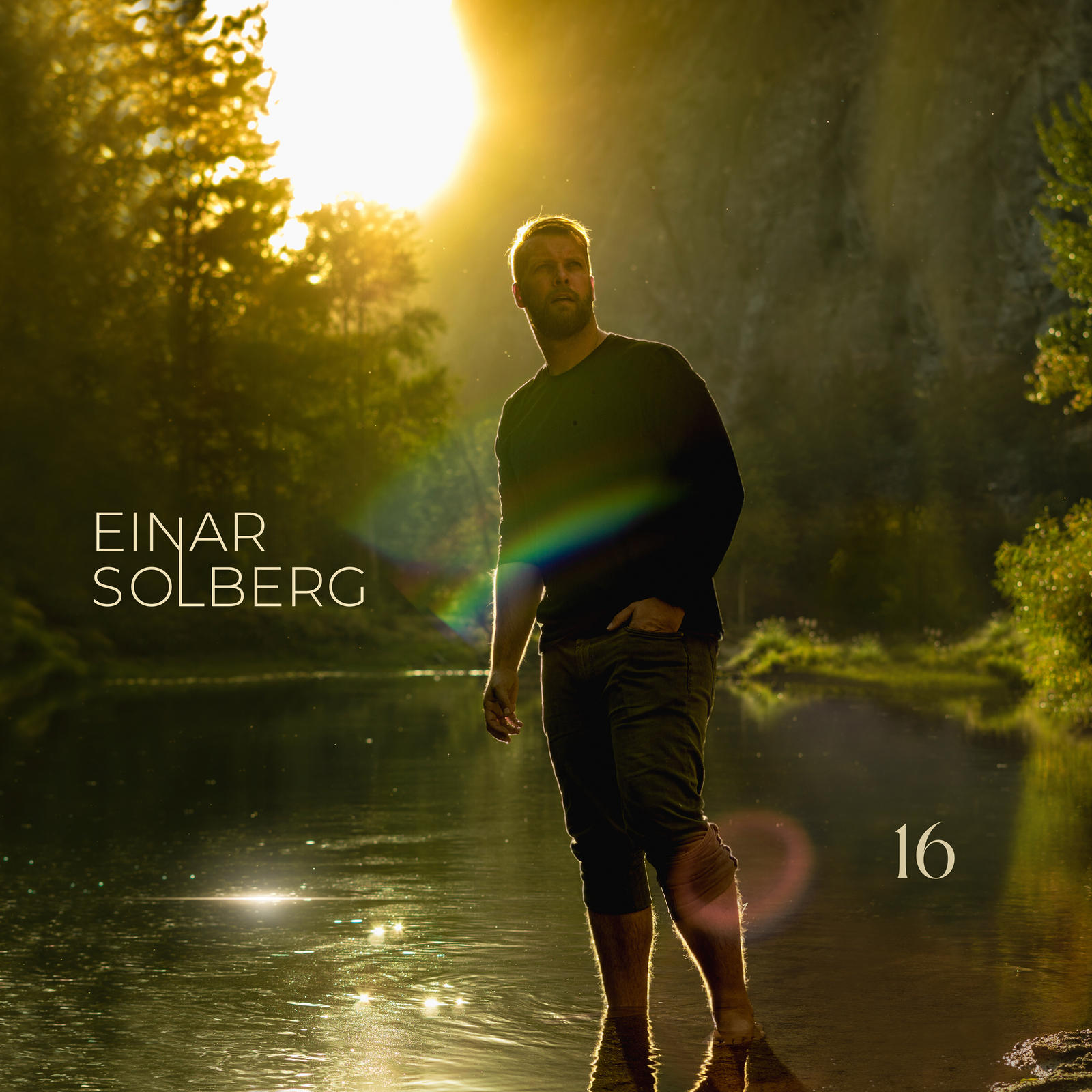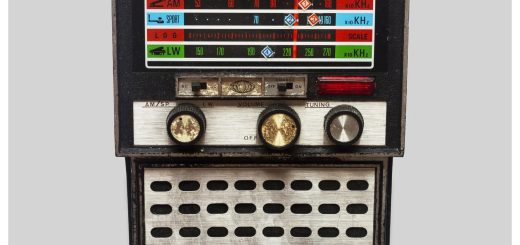Einar Solberg: ‘16’ Review

The artwork for ’16’
In the world of modern progressive rock, Einar Solberg needs almost no introduction. The Norwegian frontman of Leprous has essentially defined the sound of his main band with his iconic falsetto and synth work. It’s no surprise, then, that he’s finally decided to take his skills into the world of solo albums, such as genre colleague Ross Jennings did a while ago with his solo debut A Shadow of My Future Self.
However, where Ross went a distinct route, 16 very much could fit into any Leprous playlist without it being too jarring. We still hear Einar’s falsetto and synth work throughout the album, along with the occasional prog-rocking. That, however, isn’t to say it’s just another Leprous album under a different name; we most definitely see a unique style. One step at a time though.
While in Leprous he still writes all his lyrics about personal experiences, you can never shake off the feeling that it’s being told through a fictitious narrator, fueled by the energy of the other band members. This does not happen here: Einar is speaking directly about himself, as unfiltered as can be.
Nowhere is this more apparent than with the first song. The album starts off with the title track 16. This is where I would normally say “kicks off”, but this would be just incorrect. We get an almost 8-minute slow burner, a very sombre invitation to what mood Einar is going for and what the listener can expect for the rest of the record. Coming back to the lyrical work, this is Einar speaking, not a fictitious character, and very few metaphors. It took him 16 years to realize a very important lesson in life, no sugarcoating or wordplay. Critically acclaimed composer Raphael Weinroth-Browne adds an impressive score throughout the piece to underline the intimacy.
From here on out, things get a little more experimental. Prog Rock is defined by its broken shackles of creative limitations, but when your main band has been going for decades, it becomes almost natural to expect a certain sound from them. Remember Me could be described as a Leprous B-track, but in the context of solo work, it paints a completely new picture. The synthy bass dominates the sound of the track throughout, only later allowing for some more traditional rock elements to join in.
If that has been too crazy for you, A Beautiful Life has got you covered. This song has been described by Einar himself as the most accessible track on the record, and I can certainly agree with that notion. It’s not a pop song by any means, but the overall composition is very reminiscent of songs like Alleviate in the Leprous discography: sombre verses leading into bombastic choruses and Einar’s falsetto work riding the chord progression into a satisfying climax. Definitely one of my favourites.
Where All the Twigs Broke takes the dial down a notch again when it comes to the energy but might be the most tense song yet. In this collaboration with Star Of Ash (Ihriel, Einar’s sister), we stay on a single chord for most of the song, with a breakdown that somehow manages to be anxiety-inducing and yet still inviting. Sprinkled all over the song are also various instrumental choices to hammer in that feeling, most predominantly a piano melody that could be mistaken for Yoasobi (yes, J-Pop, I went there), were it not for the atmosphere of the remaining song.
Going from tense, we continue straight towards… even tenser. Metacognitive features a simple beat that’s being played backwards throughout. All the while, Einar pleads “Get me out of here”. It isn’t exactly an interlude, but so far feels the most like one, only picking up the pace a little more toward the end of the song, getting ready for more energy in the next song, which is Home. This song is definitely one of the most experimental pieces on the album. The world of Prog Rock collides with Classical, Bigband, and even Rap (provided by Ben Levin).
A very welcome surprise act appears in Blue Light. Asger Mygind, frontman of the Danish band VOLA, supports his prog colleague on this almost meditative 7-minute piece. The pace steadily increased until it reaches an almost-but-not-quite climax. The closest Leprous song I could compare this one to would be ‘Distant Bells’, but your mileage may definitely vary. It’s definitely a song that builds its atmosphere over time, not through sheer compositional bombast, and Asgard is no stranger to achieving such a feat with his voice (see ‘24 Light Years’ by VOLA for comparison). I would love to see these two phenomenal vocalists collaborating again in the future!
Grotto was the lead single of the album, so I won’t go in too much depth with it. One thing I will say is that I still think it was a very weird choice to be released as the first single because it’s much less accessible than A Beautiful Life. The featured appearance Magnus Børmark switching constantly between the left and right stereo channels is also pretty disorienting for me. But that’s all subjective, of course. A bit iffy around the edges for me personally, but still a solid song.
If accessibility was an issue though, Splitting the Soul is definitely one that won’t make the cut. This is not the first time Einar and his longtime friend Ihsahn (singer of the legendary Black Metal band Emperor) were featured on the same song, and I hope this tradition won’t stop anytime soon either. A synth-laden beat directs us into a realm of uncertainty, with no indication of where this journey will take us. We just know it won’t be an easy one. Once the chorus kicks in, the lovely duet of Einar’s falsetto and Ihsahn’s shouts makes the destination no clearer, because the journey isn’t over. After another tense verse, we are greeted with jarring chords that lead once again into Ihsahn’s screams, where we finally get a chance to experience the crazy jam in the climax of the song. Definitely one of my favourites on the entire record!
Over the Top plays out the most like a traditional Leprous song out of any songs on the record. It sits somewhere between Below and Out of Here, two songs I absolutely adore from Leprous, so I very much appreciate this song’s existence!
And with that, we’re down to the last song of the record. Shy of only a few seconds, The Glass Is Empty stays just below beating Leprous’ longest songs ever released. This 11-minute mammoth of a song doesn’t waste any time though, as Einar takes us through his personal experience with what I can only interpret as a struggle with depression and the unacceptance of admitting it. The main lyric of the song “The glass is empty, I drink from it nonetheless” along with various themes of reclusiveness and rejection of help show as much. This is coupled with a beautiful ride through grandiose jams and slow piano moments. For such a heavy subject matter, I can do nothing but compliment the very tactful and empathetic approach to the songwriting, which still manages to be a fantastic musical piece from the instrumentation and composition alone. The time aspect also helps a lot in that regard, with a very long build-up towards the end misleading us into an abrupt end, closing off this record.
16 demonstrates Einar’s musical prowess and unique style that has made him a defining figure in modern progressive rock. While the album seamlessly fits into the realm of Leprous’ discography, it also showcases his individuality and unfiltered expression. From the introspective title track to the experimental and genre-blending compositions, this album takes listeners on a captivating journey through Einar’s personal experiences and emotions, coupled with thought-provoking lyrics. 16 is a testament to Einar’s artistry and his ability to captivate audiences both within and beyond the realm of progressive rock.
If you’re a fan of Leprous already, this album is a no-brainer to pick up, but even beyond that I highly encourage you to give it a listen!









